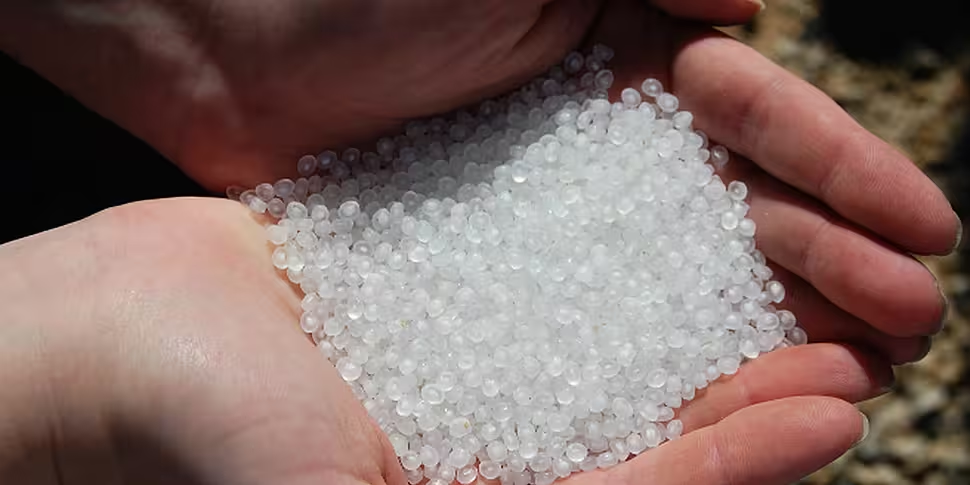People across the UK have taken part in the biggest ever “nurdle hunt” to raise awareness of the millions of plastic pellets that are washing up on seashores around the world - with devastating consequences.
Nurdles, which are used in the manufacturing industry, are melted down to make almost all of our plastic products, such as phone covers, toy dolls and plastic bags.
There are calls for regulations for those transporting the tiny plastic pellets used in the manufacturing industry as many are accidentally released into the environment - spilling out of factories or cargo into the water.
On Limekilns beach in Scotland around 1.2 million plastic pellets have washed up, according to new research at Strathclyde University.
Maddie Berg of environmental charity FIDRA, which organised the UK's Great Nurdle Hunt at the weekend, told Sky News: "Once these pellets are in the sea, they don't go away.
"All they do is slowly break down into smaller and smaller pieces which will just become more widespread in the environment.
"They also act like sponges, taking up pollutants from the surface water so they can be toxic too."
Nurdles are the building blocks for industry. One of the largest plastic manufacturers in the world, Derby-based RPC BPI Group, uses millions of them every week to make things like bin bags.
External affairs director Mike Baxter said: "The problem that we have is historic. A lot of pellets got into the sea 30 or 40 years ago.
"A lot of this plastic waste in the ocean doesn't originate in Western Europe, it's coming from the Pacific and the Far East where the only way that refuse is disposed of is to throw it out and it ends up in the sea."
Many nurdles end up in the ocean, where wildlife such as sea birds and fish eat them. This gives them a false sense of satiation leading them to starve to death. Birds like the puffin are said to be at particular risk.
There are calls for companies using plastic pellets to take greater care to contain them.
In 2012, 150 tonnes of nurdles leaked from shipping containers into the sea around Hong Kong.
The so-called "mermaid tears" swamped beaches and clogged up grass. Some of the pellets were found in the guts of fish and so locals became reluctant to eat seafood.









